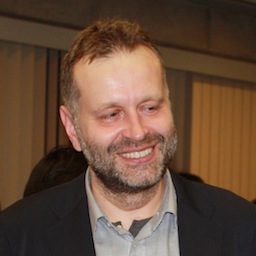Lab Name and Affiliation
|
BCI-lab-group
Life Science Center of TARA, University of Tsukuba, Tsukuba, Ibaraki, Japan
|
Lab Director (or Principal Investigator)

|
Tomasz M. Rutkowski received his M.Sc. in Electronics and Ph.D. in Telecommunications and Acoustics from Wroclaw University of Technology, Poland, in 1994 and 2002, respectively. He received a postdoctoral training at the Multimedia Laboratory, Kyoto University, and in 2005-2010 he worked as a research scientist at RIKEN Brain Science Institute, Japan. Currently he serves as an assistant professor at the University of Tsukuba and as a visiting scientist at RIKEN Brain Science Institute. Professor Rutkowski's research interests include computational neuroscience, especially brain-computer interfacing technologies, computational modeling of brain processes, neurobiological signal and information processing, multimedia interfaces and interactive technology design. He is a senior member of IEEE, a member of The Society for Neuroscience, The Asia-Pacific Signal and Information Processing Association (APSIPA), and The Japan Neuroscience Society. He is a member of the Editorial Board of Frontiers in Fractal Physiology and serves as a reviewer for IEEE TNNLS, IEEE TSMC - Part B, Cognitive Neurodynamics, The Journal of Neural Engineering, Journal of Neuroscience Methods, and PLOS One.
|
Lab Introduction
|
The bci-lab.info team is an EEG & brain-computer interfacing (BCI) lab located in Life Science Center of TARA at University of Tsukuba, Tsukuba, Ibaraki, Japan.
The the bci-lab.info team focuses on multisensory BCI experiments - primarily the auditory and tactile modality paradigms (we also experiment with vision, as well as we prepare olfactory and gustatory paradigms in order to develop in near future the "all-sensory-stimulus-based-BCI"). We develop signal processing, especially data-driven, methods for biomedical signal denoisong, analysis and classification. The current lab projects are related to:
1. Multisensory BCI paradigms (auditory, visual, somatosensory, olfactory, gustatory, etc.)
2. Brain correlates of creativity elucidation
3. Imagery musical BCI
4. Adaptive and data-driven multivariate biomedical, especially EEG, signal processing and machine learning methods
5. EEG hyperscanning
6. Biomedical signal processing (ECG, EMG, GSR, pulse-oximetry, fNIRS, etc.).
|
Lab Contact E-mail
Lab URL
|